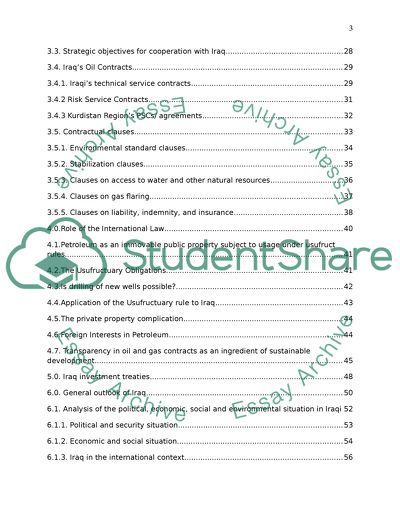Cite this document
(“Sustainable Development of Iraqi Oil in International Law: Prospects Dissertation”, n.d.)
Retrieved from https://studentshare.org/law/1495454-sustainable-development-of-iraqi-oil-in
Retrieved from https://studentshare.org/law/1495454-sustainable-development-of-iraqi-oil-in
(Sustainable Development of Iraqi Oil in International Law: Prospects Dissertation)
https://studentshare.org/law/1495454-sustainable-development-of-iraqi-oil-in.
https://studentshare.org/law/1495454-sustainable-development-of-iraqi-oil-in.
“Sustainable Development of Iraqi Oil in International Law: Prospects Dissertation”, n.d. https://studentshare.org/law/1495454-sustainable-development-of-iraqi-oil-in.


